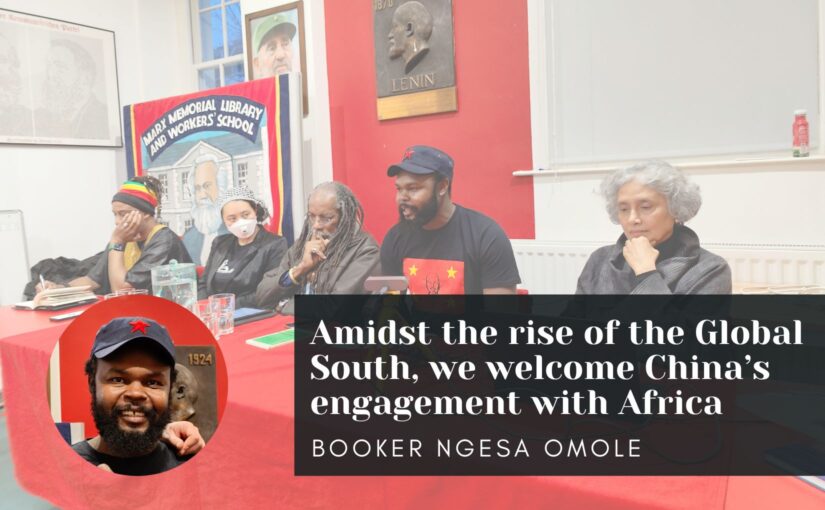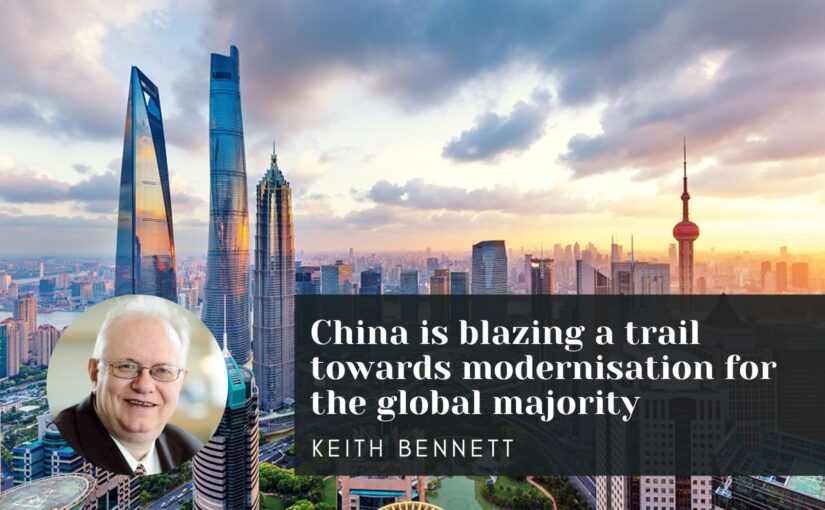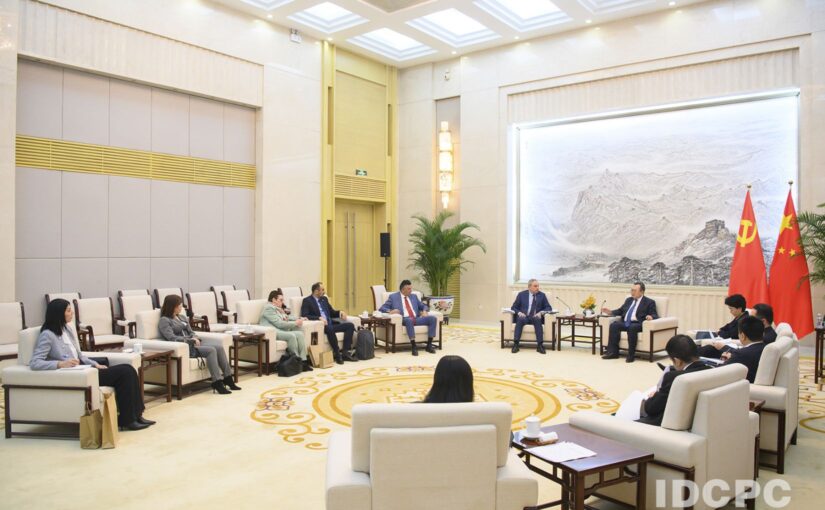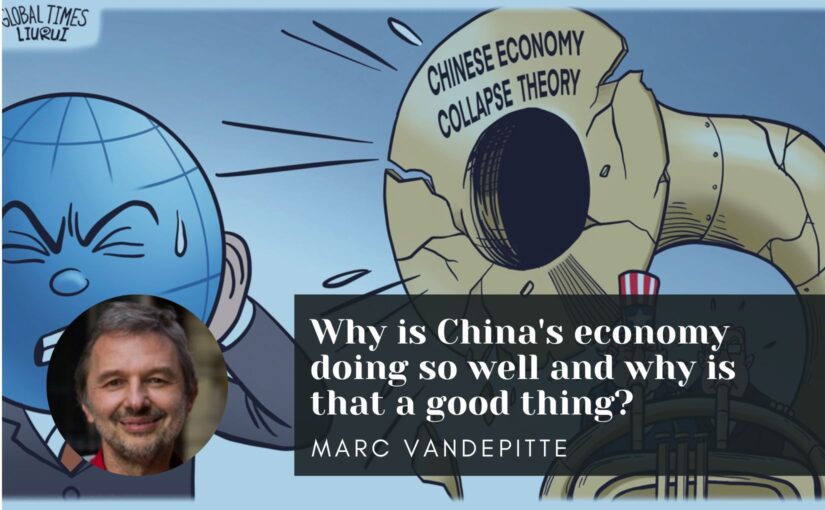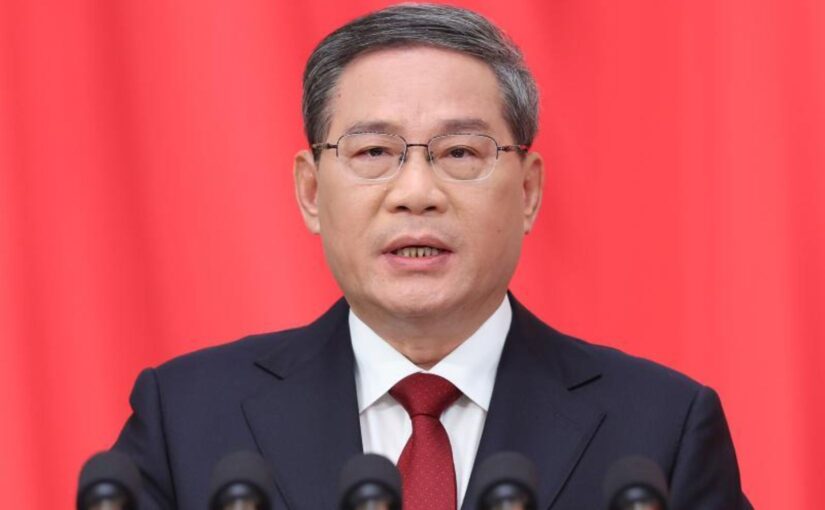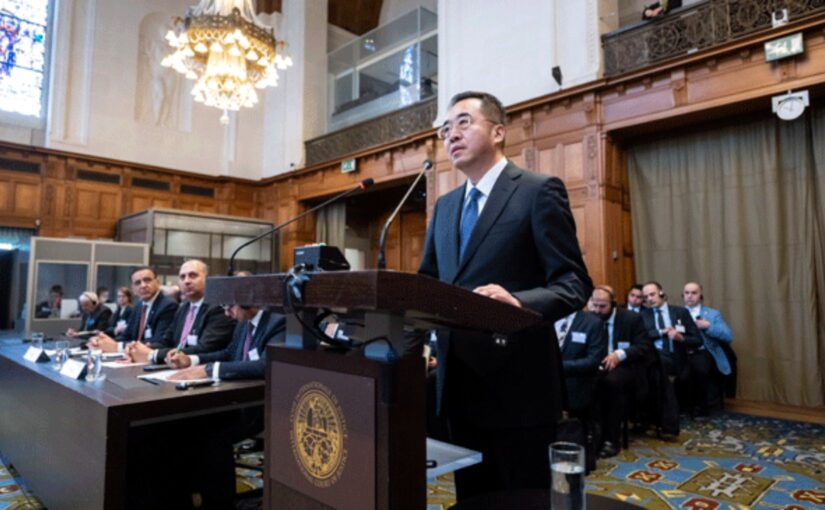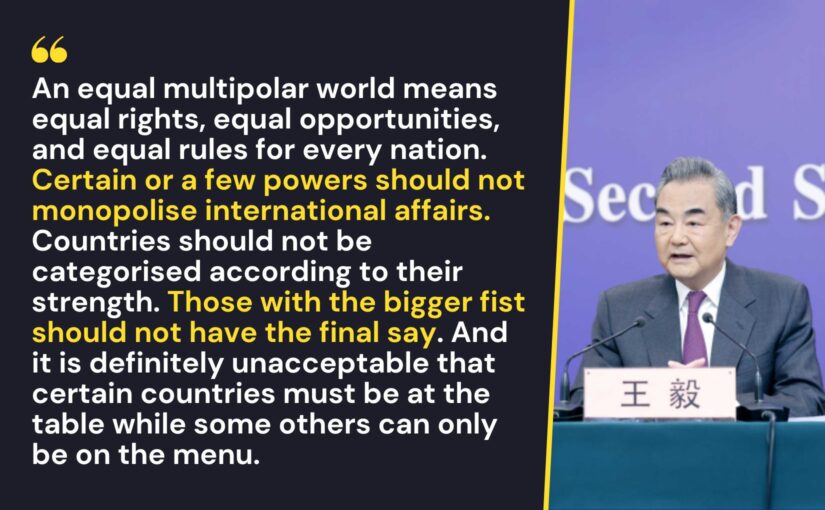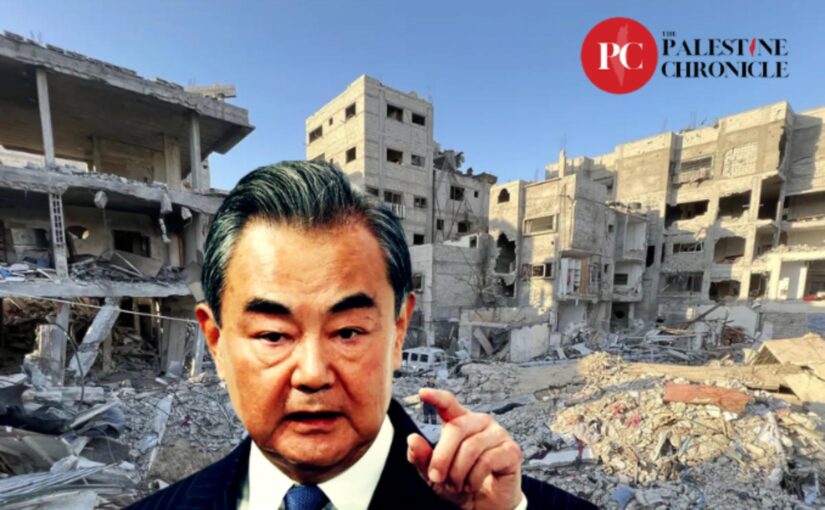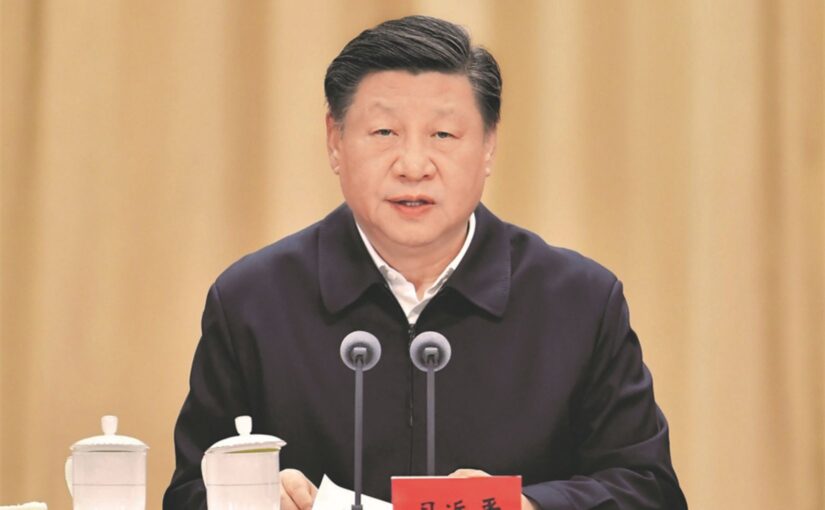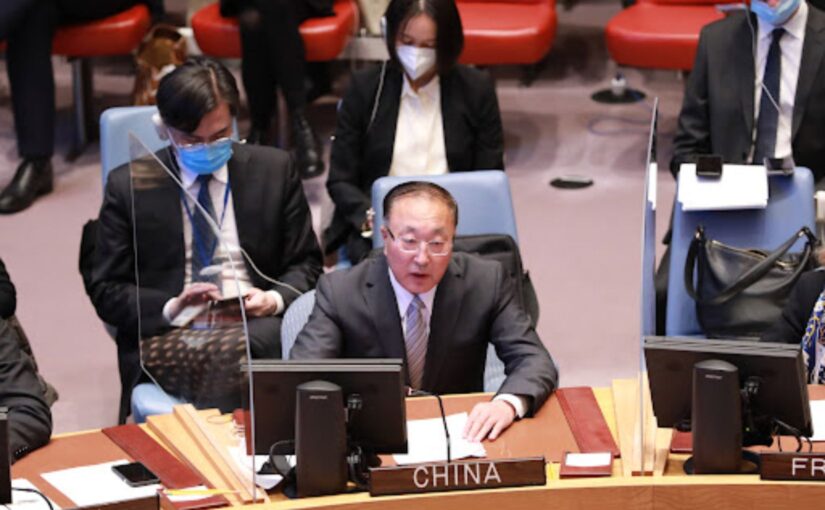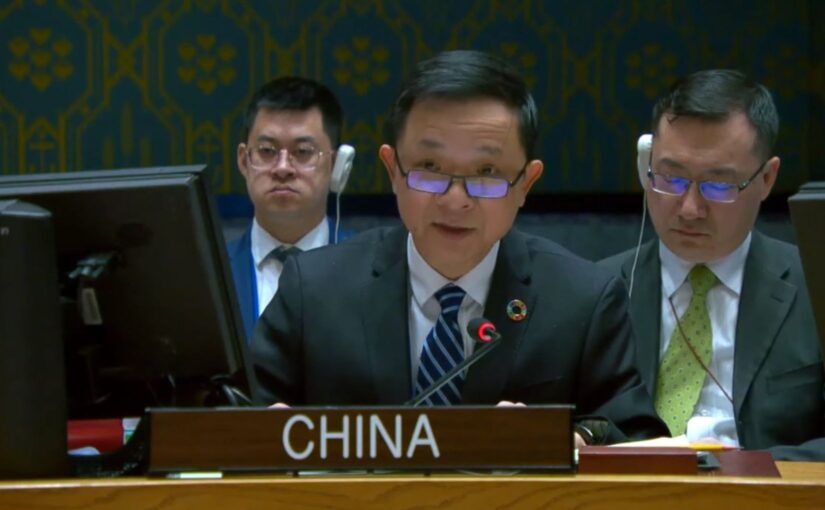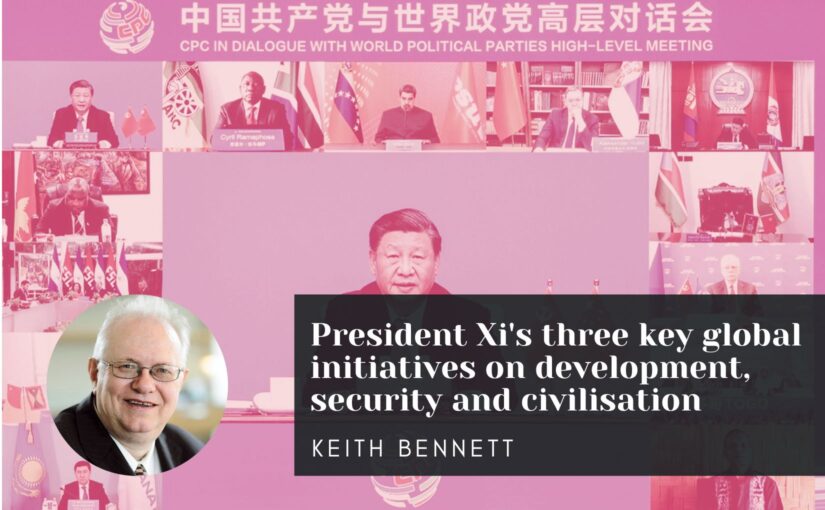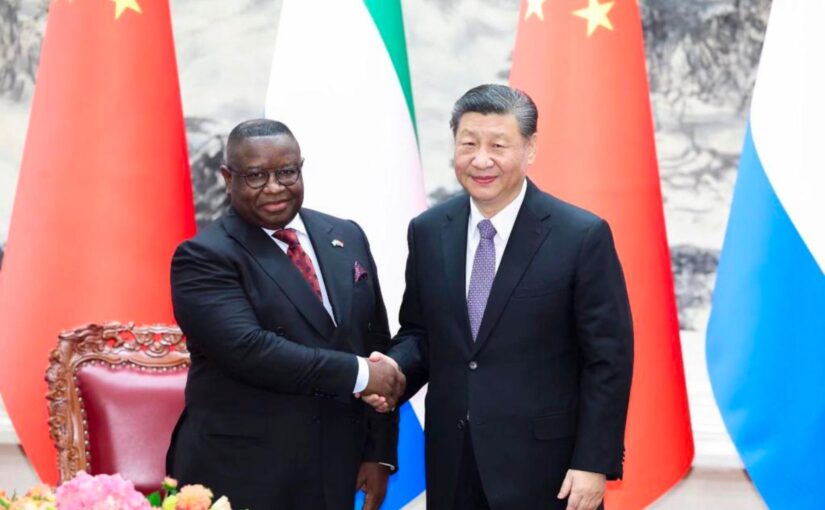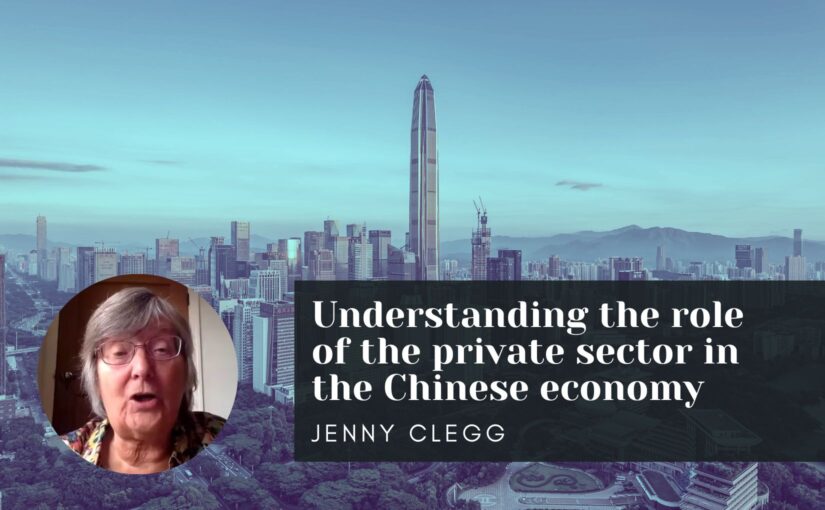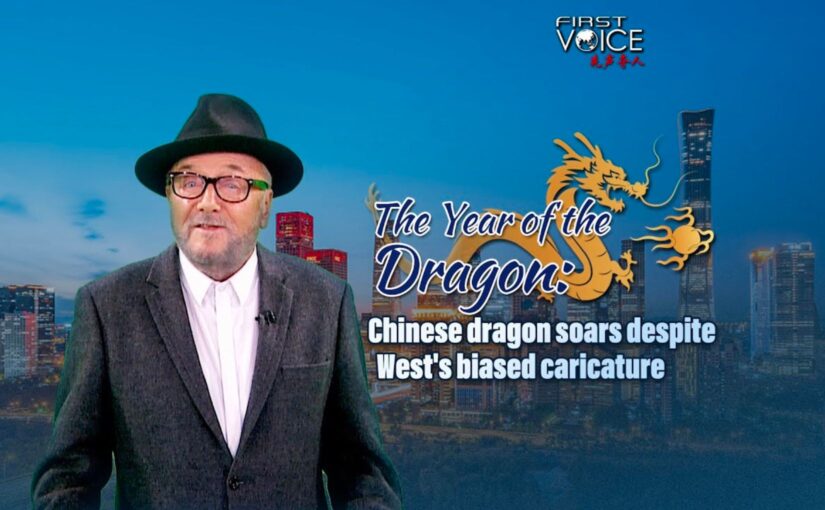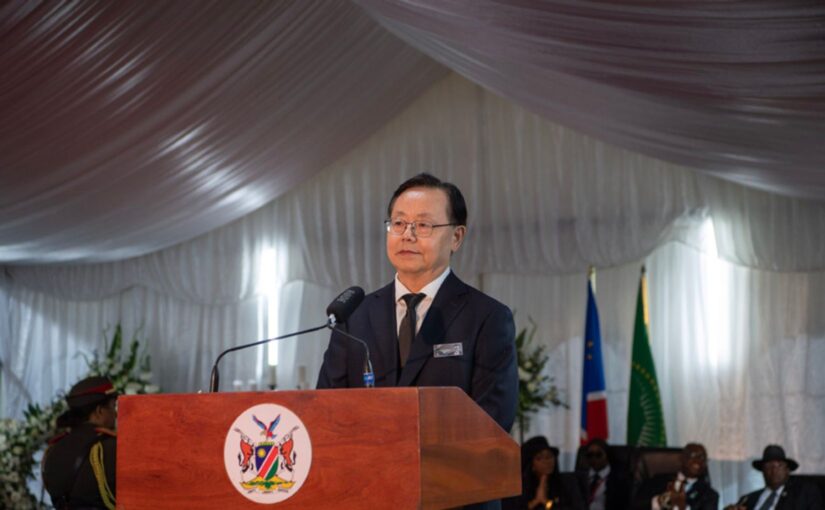On Saturday 16 March, Friends of Socialist China hosted an event on Africa, China and the Rise of the Global South at the Marx Memorial Library in London (and online). The library was packed to capacity, and heard powerful contributions from Booker Ngesa Omole (National Vice-Chairperson and National Organising Secretary of the Communist Party of Kenya (CPK)), Roger McKenzie (Foreign Editor, Morning Star), Fiona Sim (The Black Liberation Alliance), Cecil Gutzmore (veteran Pan-African community activist and historian), Alex Gordon (RMT President), and Radhika Desai (Convenor, International Manifesto Group). Unfortunately Frank Murray of Caribbean Labour Solidarity was unable to attend due to personal reasons. Roger McKenzie’s event report can be read in the Morning Star.
Booker’s wide-ranging and passionate keynote speech focused on China-Africa relations and China’s role in the world. Booker noted that his two visits to China in 2023 “filled me with a renewed sense of hope and convinced me of the superiority of the Chinese socio-economic and political system over the liberal Western model often imposed on African nations wholesale.”
On the economic relationship between China and Kenya – and Africa more generally – Booker observed that the character of this partnership is profoundly different to the exploitative relationships that African nations have historically had with Western powers. “This relationship has highlighted an alternative approach to engaging with development partners and international capital. Unlike the United States and Western nations, which have historically imposed detrimental policies on African nations through institutions like the IMF and World Bank—such as the infamous Structural Adjustment Plan—China has adopted a policy of non-interference in the internal affairs of sovereign countries. This shift has spared African nations from the suffering and hardships inflicted by such destructive policies.”
Booker went on to state that “the United States and the rest of the West have used exploitation and force to impose their will for far too long.” However, in an era of emerging multipolarity and a rising Global South, “the geopolitical environment has fundamentally changed, with the Global South emerging as a major actor in world affairs. And it is amidst this shift that China has emerged as a beacon of hope for the oppressed and exploited.” In relation to imperialism, “China stands as a counterforce, presenting an alternative path founded on mutual respect and cooperation… China’s policy of non-interference starkly opposes Western interventionism, whose legacies of looting and colonialism still haunt and define regions like Africa.”
Turning his attention to the propaganda war on China, Booker asserted: “The racist and cynical attacks on China are intolerable”, and that “labelling China as an imperial power is both ridiculous and reactionary.” He reminded the audience that Africans know only too well what imperialism looks like: “Having experienced direct and indirect imperialist interventions in Africa, we have witnessed the devastating consequences of imperialist wars and interventions.” This contrasts starkly with China’s engagement with the continent, which is based on mutual benefit, respect for sovereignty, and assisting African countries to develop their own economies and infrastructure. “Leveraging China’s resources and expertise, Africa can accelerate its development and address important issues such as infrastructural deficiencies, industrialization, and poverty.”
Booker concluded:
The voices of the Global South demand respect and sovereignty, challenging the hegemony of the West. Amidst the rise of the Global South, we welcome China’s engagement with Africa in this new era of collaboration.
This speech was first published on the website of the Communist Party of Kenya.
Ladies and Gentlemen, Esteemed Comrades, it is an honour to stand before you today, representing the Communist Party of Kenya (CPK) and the Pan African Socialist Alliance (PASA). I extend my deepest gratitude to the Friends of Socialist China (FSC), particularly Comrade Keith Bennett, for their steadfast support and for granting me this forum to address such a significant topic.
Gathered here in the Karl Marx Memorial Library, we are reminded of the enduring influence of Marx’s ideas, which continue to guide us in our struggle for a just and egalitarian society. It is the ideal place as we embark on a discussion that not only holds relevance but also holds the key to shaping the future of the Global South: “China and the Rise of the Global South.”
Comrades, today I represent the Communist Party of Kenya, a party that has undergone a split resulting in the formation of two factions: the majority faction, which I am part of, and a minority faction that has entered into a strategic alliance with the current kleptocratic regime and serves as a puppet of US interests in Nairobi. While this split can be seen as both fortunate and unfortunate, it underscores the complex dynamics within our party.
It is fortunate in the sense that a united Communist Party of Kenya based on opportunism would serve no purpose for the Kenyan working class. However, it is unfortunate because a united party would undoubtedly be stronger and more effective in advancing the interests of the working class. Yet, such is the nature of development—just as in the human body, where cells divide and multiply to maintain health, our party undergoes transformations to adapt to changing circumstances. I proudly represent the majority faction of the Communist Party of Kenya, which stands in staunch opposition to the comprador ruling class in Nairobi.
As for the Pan-African Socialist Alliance (PASA), it is a revolutionary movement that unites Pan-Africanist organizations in Kenya and beyond. Dedicated to achieving African liberation and unity on a global scale, PASA vehemently opposes imperialism in all its manifestations, including colonialism, settler-colonialism, Zionism, and neo-colonialism. Moreover, PASA advocates against social oppressions rooted in gender, class, or nationality.
Aligned with genuine Pan-African forces worldwide, PASA advocates for a unified socialist and non-capitalist path to development in Africa and the African diaspora. It stands in solidarity with oppressed peoples fighting against labour exploitation and land exploitation, striving for a future where all Africans can thrive free from oppression and exploitation.
In 2023, I had the privilege of visiting China twice, where I witnessed first-hand the remarkable achievements of Chinese Socialist Construction. These visits filled me with a renewed sense of hope and convinced me of the superiority of the Chinese socio-economic and political system over the liberal Western model often imposed on African nations wholesale. Contrary to Western rhetoric, I found a nation and its people in harmony with nature, dispelling the myth that Chinese socialist development wreaks ecological havoc.
Despite potential language barriers, I was pleasantly surprised to find that many young Chinese individuals in the streets of Beijing were proficient in English and engaged in lively debates. Unlike the institutionalized racism prevalent in the United States, China actively discourages and punishes racist behaviour—a stark contrast to the US, where racial privilege persists. It became evident to me that Western media propagates falsehoods far too often, obscuring the realities of Chinese society and governance.
Allow me to revisit my 2017 commentary on the Africa-China relationship. The partnership between China and Kenya, as well as Africa at large, has not only spurred remarkable infrastructural development but has also fostered a genuine cultural exchange between Chinese and African communities. It has provided Africans with first-hand insights into Chinese culture, dispelling the half-truths and misinformation perpetuated against China and its people, often propagated globally by western media outlets like CNN, BBC, Fox News et al.
Moreover, this relationship has highlighted an alternative approach to engaging with development partners and international capital. Unlike the United States and Western nations, which have historically imposed detrimental policies on African nations through institutions like the IMF and World Bank—such as the infamous Structural Adjustment Plan—China has adopted a policy of non-interference in the internal affairs of sovereign countries. This shift has spared African nations from the suffering and hardships inflicted by such destructive policies.
Another notable aspect is the efficiency with which projects are executed. Previously, bureaucratic red tape and exorbitant costs often prolonged project timelines, sometimes spanning several years before ground activities commenced. However, with the influx of Chinese investment, we have witnessed a swift turnaround. Projects are now executed promptly, delivering high-quality results. This stands in stark contrast to the portrayal by Western media, which often dismisses products and projects from China and Russia as inferior before their arrival. These words remain true today even though the attitude of the ruling class in the global north towards the Chinese socialist experiment remains unchanged, more than five years later.
The challenges facing the Global South are vast, encompassing a myriad of socio-economic and political issues rooted in colonial and neo-colonial histories. From underdevelopment to disease, violence, and exploitation, these afflictions persist. Yet, amidst these struggles, it is essential to recognize the shared responsibility between the global North and South.
While geopolitical unrest and interventions ravage countless lives worldwide, there is a glimmer of hope. The vulnerability of imperialism is laid bare in places like Gaza, where Western hegemony faces daily erosion, and in conflicts like the NATO-led proxy war with Russia in Ukraine, which exposes fractures in imperialist stability. Recent events in the Congo underscore the diminishing influence of Western imperialism.
In the Sahel region, including Mali, Burkina Faso, and Niger, French imperialism falters on a daily basis. In the North, Libya stands in history and in the present as the perfect example of imperialist violence and failure. Southwards, Somalia’s position since the Black Hawk Down incident highlights the pitfalls of US interventions. The Sudanese people have remained strong in their continued resistance against imperialism since the war broke out in Sudan.
Eritrea, often likened to the “Cuba of Africa,” bears the brunt of punitive unilateral actions and economic sanctions imposed by the United States. Its perceived transgression? Embracing self-reliant economic strategies. This exemplifies the treatment meted out by the US towards African nations daring to diverge from the neoliberal norms dictated by the West. Such brazen arrogance of the US begs the question: How can such dominance prevail on a global scale? The inevitable outcome is not progress but rather a descent into chaos, perpetuating a cycle of disorder and instability similar to what has now become of Libya.
And every day, the escalating Cold War tensions with China further shake the foundations of the fragile imperialist economy. Overall, the emerging picture reveals that the decline of the US empire mirrors historical patterns, signalling the dawn of a new era where empires inevitably fall.
Continue reading Booker Ngesa Omole: Amidst the rise of the Global South, we welcome China’s engagement with Africa